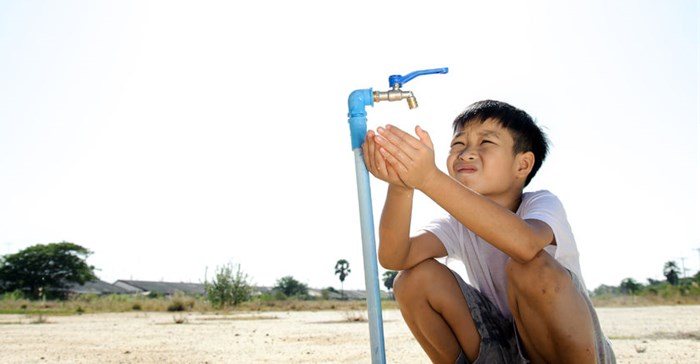
"Many South Africans are at last realising just what a precious resource this is. This drought is undoubtedly forcing a change in mindset and we need to join together to take this far further than short-term interventions, no matter how important these are. We need to consider climate change, food security, sustainability and find proactive solutions," she said.
Redfearn said that, when it came to scenario planning, a longer term 10-year plan was needed. Proactive solutions such as increased use of green building practices, better maintenance of water infrastructure, water recycling plants, on-site water recycling measures such as rainwater harvesting and the re-use of grey water as well as better pollution control to free up currently unusable water sources needed to move to the top of the agenda.
Immediately after the 2010 Soccer World Cup, the Department of Water Affairs (DWAF) warned that, at the current rate of water usage, demand was likely to outstrip supply in the very near future. In a paper, the department noted that when compared against a global rainfall average of 870 mm per year, South Africa only received 450mm, making it the world's 30th driest country. South Africa already uses about 98% of its available water.
She said South Africa could no longer afford water-thirsty projects and local and provincial government, town planners, developers, architects and the construction industry needed to see this as an opportunity rather than a constraint. But, in the interim, all need to brace themselves for the far-reaching consequences of this severe drought as the necessary rainfall is only expected by March 2016. Already, this has become a national issue with five provinces - KwaZulu-Natal, the Free State, North West, Limpopo and Mpumalanga - officially declared drought disaster areas.
According to the KwaZulu-Natal Agricultural Union (Kwanalu), more than 100,000 animals have died in KwaZulu-Natal alone. Because of extensive crop losses, thousands of jobs are being shed, with job losses in the sugar industry alone topping 8,000. Kwanalu says that most areas are also reporting that they have little or no water for both human and animal consumption. Water tables have dropped so low that water can't be drawn and dams are empty and many people in rural areas have reduced their number of meals to just one a day.
Zaahid Abdul Ganey, Corporate Finance Manager at Deloitte Kwa-Zulu Natal, pointed out that, as the largest water user consuming about 60 percent of the country's water, the agricultural sector would be hardest hit. According to recent statistics, the agricultural sector has contracted by more than 17 percent quarter on quarter. Farmers are expected to lose about R10-billion this year with GrainSA predicting a 29 percent decrease in the basket of summer crops. Last year's maize output of 14,3 million tonnes is expected to shrink to by 31 percent to 9.8 million tonnes.
"As agriculture is one of the major contributors to Gross Domestic Product (GDP) and a major employer, it is inevitable that there will be job losses, especially when it comes to semi-skilled and unskilled workers," he said. Abdul Ganey joined with others in urging financial institutions to exercise restraint when it came to foreclosures for bank loans. Whereas some large commercial farmers were able to wait out a drought, small-scale farmers were more vulnerable. These farmers, he noted, were essential to the future development and transformation of South African agriculture.
"We also need to remember that the effect of the drought will have a domino effect across many other sectors," he warned.
Already, this is being felt with large sugar companies forecasting significant drops in earnings for the 2016 financial year. As a result, many are increasingly looking to cross-border investments which would be a loss to the region. Suppliers are already suffering due to mill closures.
The tourism industry, one of KZN's biggest earners, stands to be severely impacted with the North Coast, a major tourist hub, attracting 60 percent of its annual tourists at a time when it is experiencing severe water restrictions and outages as dams empty.
"Manufacturers and retailers will also feel the pinch. They will need to plug supply by importing at a higher cost. This will, unfortunately, be passed on to the consumer. The same applies to agricultural inputs such as animal feed. The weakening rand will further inflate prices," he warned.
The public sector also stands to lose. Not only is government spending R2,6-billion on drought relief but it will also see decreased tax revenue from the agricultural sector. Increased imports will put further pressure on the fiscus, widening the current account deficit at a time when South Africa is already experiencing lacklustre growth.
Redfearn also voiced concern about the social impacts of the drought, particularly for those in disadvantaged communities and rural areas as water shortages compromised health, increasing the risk of water-borne diseases such as diarrhoea and cholera.